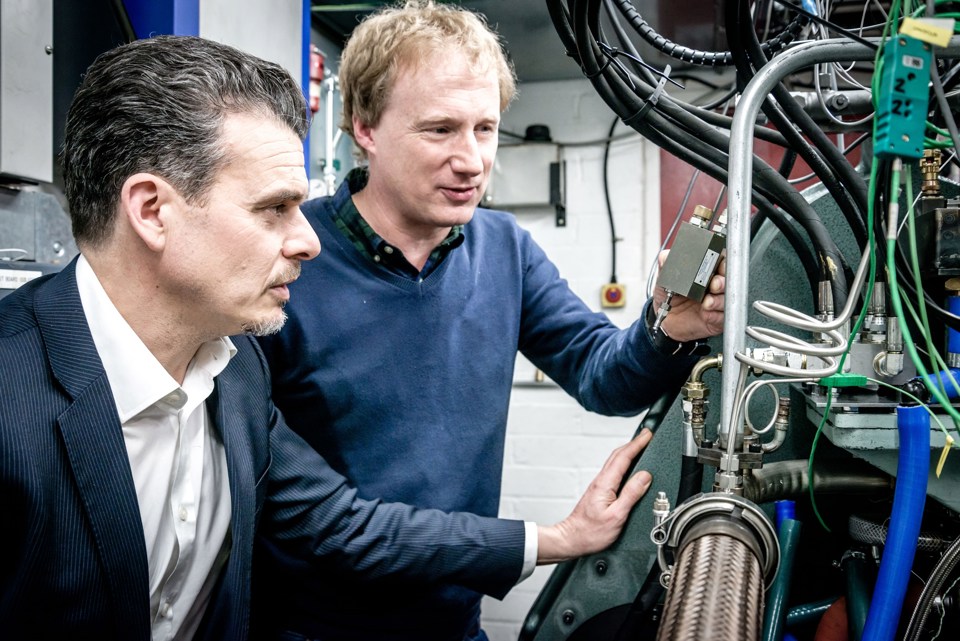Scientists have unveiled Cryopower, a new engine technology that can significantly increase fuel efficiency and reduce harmful emissions for heavy goods vehicles (HGVs).
Researchers at the University of Brighton and industry partners Ricardo have demonstrated that by storing and injecting liquid air into split-cycle engines, fuel consumption is reduced by up to 30% while NOx fumes and particle emissions are also reduced.
The new technology would enable long-haul freight lorries to fully comply with inner-city emission restrictions, saving hauliers thousands of pounds per year. It also has potential cost-saving benefits for other diesel-fuelled industries including marine and rail.
Researchers say while the current trend for passenger cars is towards battery-powered vehicles, HGVs are hard to electrify. Batteries would take up more than half a long-distance truck’s payload, increasing costs and requiring yet more vehicles on the road to deliver the same quantity of goods.
Dr Rob Morgan, reader in the University’s School of Computing, Engineering and Mathematics, and the lead researcher, said: “Even if a significant breakthrough in battery technology were achieved in the future, the strains on the recharging infrastructure and power grid may still be prohibitive.
“On any sensible scenario, diesel-fuelled power generation will be around for many years. Our research is a potential game-changer.”
Trials have produced a 20% reduction in fuel consumption against the most fuel-efficient lorries and a 30% reduction against the average fleet.
Researchers estimate the new engine could bring an estimated fuel saving of £9,000 per annum per truck.
Morgan said: “This recuperated split cycle engine can achieve world-leading levels of thermal efficiency which would massively reduce the use of fossil fuels in the short to medium term and the demand for precious renewable fuels in the long term.”
A new company has been set up, Dolphin N2, which plans to bring the technology to market within the next few years.



















Login to comment
Comments
No comments have been made yet.